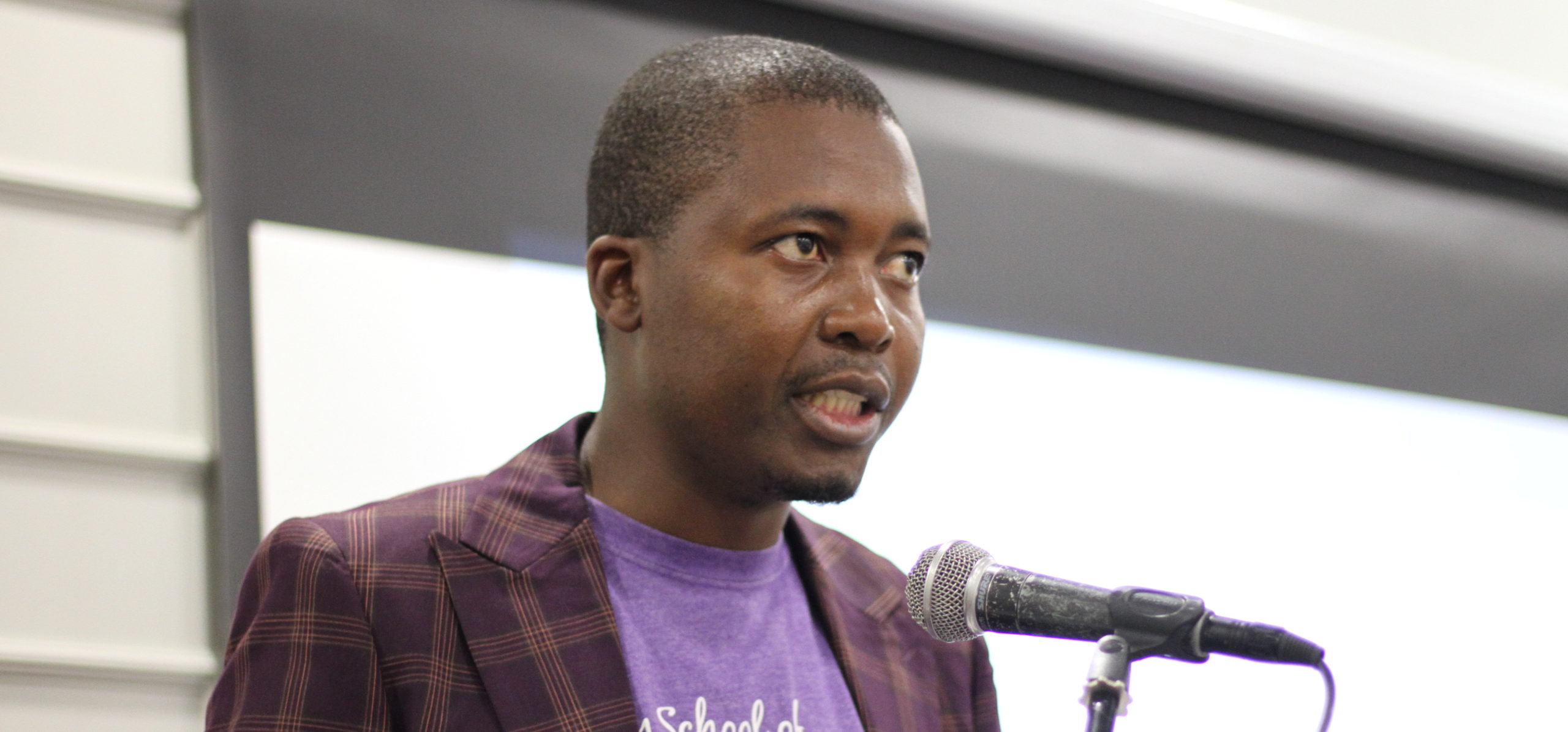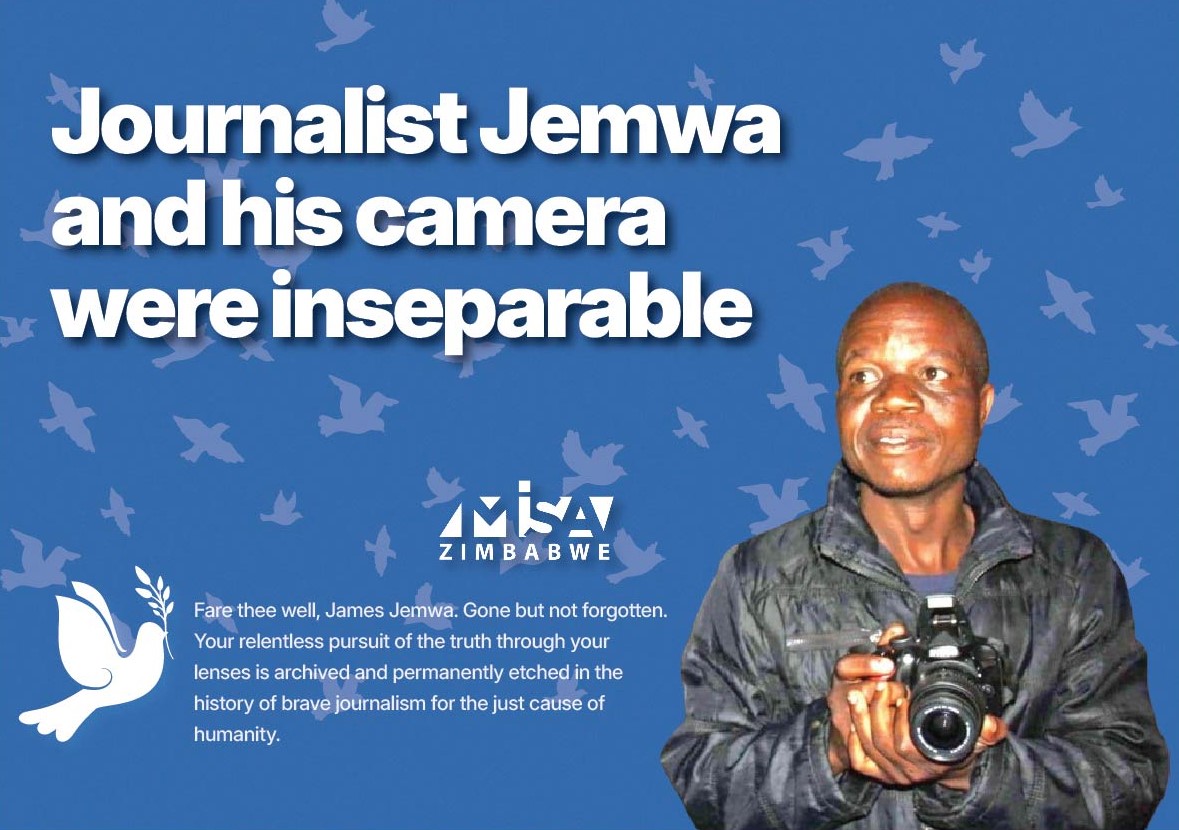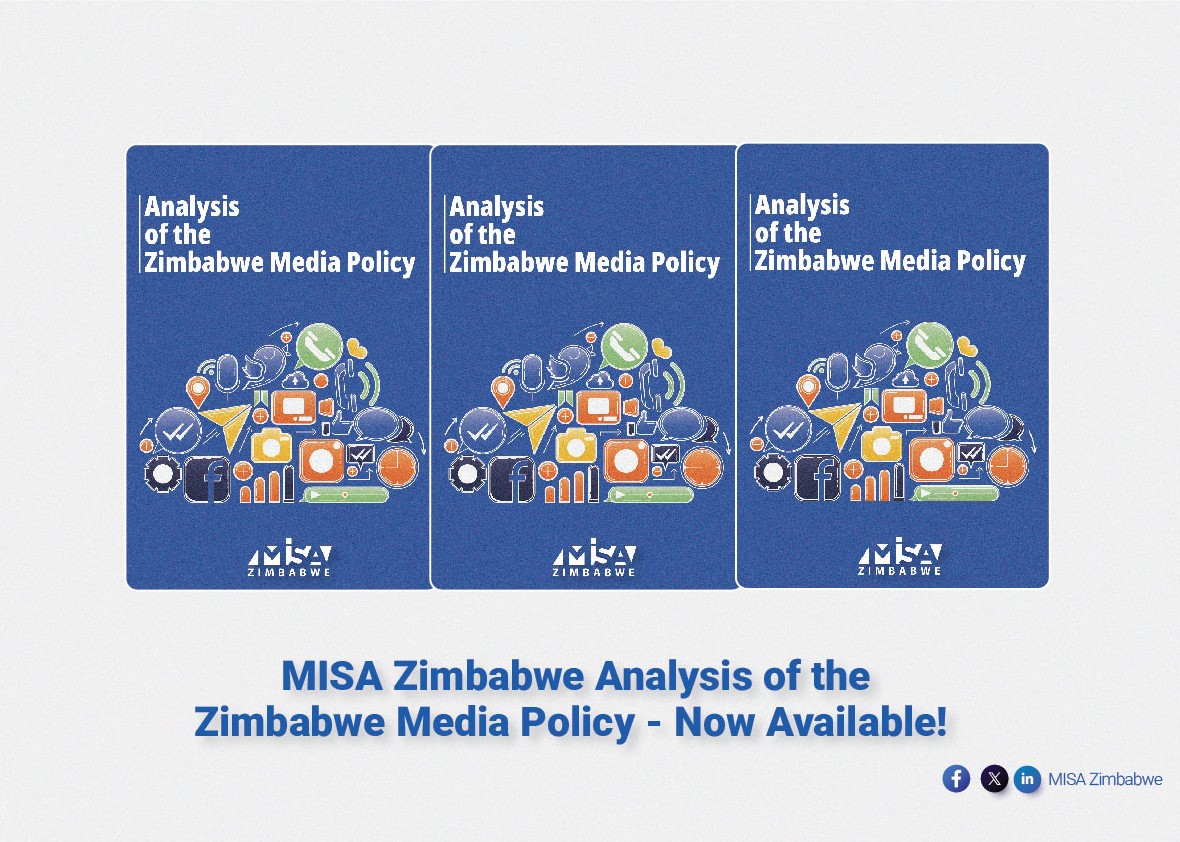The Speaker of Speaker of the National Assembly
Honorable Advocate Jacob Mudenda
Parliament of Zimbabwe
Nelson Mandela Avenue
Harare,
Dear Sir,
RE:CONCERN OVER DELAYS IN MEDIA REFORMS IN LINE WITH THE CONSTITUTION
The Media Institute of Southern Africa Zimbabwe Chapter (MISA Zimbabwe), by copy of this letter, humbly seeks to draw your respected attention to our concerns pertaining to the above referenced issue.
In doing this, MISA Zimbabwe is cognisant of Parliament’s oversight role and obligations to protect the Constitution and promote democratic governance in Zimbabwe. In addition, Parliament also has the power to ensure that provisions of the Constitution are upheld and that the State and all institutions and agencies of government at every level, act constitutionally and in the national interest.
It is with this in mind, that we humbly seek to draw your attention to the following issues of concern:
1. Alignment of media laws
Following enactment of the new Constitution in 2013 it was expected that all constitutional obligations, such as the alignment of media laws, would be performed diligently and without delay as stipulated under Section 324. Four years later, this has not happened as laws such as the Broadcasting Services Act (BSA) and Access to Information and Protection of Privacy Act (AIPPA), among others, are still to be
aligned with the Constitution. This is despite proclamations by the government that these laws are part of the 400 Acts of Parliament that are set for review with the aim of aligning them with the Constitution.
2. ZBC transformation
The need for the transformation of the Zimbabwe Broadcasting Corporation (ZBC), into a truly independent public broadcaster cannot be over-emphasised. The BSA provides that there shall be public broadcaster, but ZBC in its current shape and form fails to meet the threshold as defined by the African Charter on Broadcasting. In particular, Parliament should through its oversight role ensure that:
• The Zimbabwe Electoral Commission (ZEC), sets clear monitoring mechanism and sanctions for non-compliance to ensure that the state media complies with their public service mandate.
.• ZEC should widely publicise its monitoring mechanism and measures to ensure equal and equitable access to the public media as well as guarding against the spewing of hate language in the media, especially by the public media.
• ZEC must demand schedule of coverage from the public broadcaster based on contesting parties, assess its fairness, approve and monitor its implementation.
• ZEC and ZMC should ensure authorities comply with the constitution as it relates to securing the editorial independence and impartiality of the state media.
• ZEC in partnership with the ZMC should review the code of conduct governing media during elections in consultation with media stakeholders
• ZBC must establish a clear public complaints mechanism to address public concerns and act on them
3. Issue of dual regulation and or accreditation
• The requirement that a journalist who is already accredited with the Zimbabwe Media Commission (ZMC) needs further accreditation by the Zimbabwe Electoral Commission (ZEC) for election related coverage, is unnecessarily cumbersome, bureaucratic and an unnecessary drain on the fiscus.
• Journalists duly accredited by the ZMC, should thus be allowed to cover election-related processes and events in the spirit and letter of the right to media freedom.
• The accreditation of journalists done by the ZMC should suffice event for election purposes.
• The media cannot cover elections properly when it cannot access relevant events and places by virtue of not being accredited by ZEC. The purpose of laws or regulations on media and elections – and the function of a regulatory body – is to create an environment in which the media can go about their business freely. Elections are not state secrets to be investigated by dedicated investigative journalists; rather, they should be conducted in the public eye. There is thus an argument of principle that journalists should be given unfettered access to election events.
• Freedom of information entails, among other principles, that the media is entitled to investigate and report critically on the efficiency and probity of election administration. This is aptly provided for under sections 61 and 62 of the Constitution which guarantees media freedom and access to information respectively.
4. Media monitoring during elections
• Media monitoring involves collecting data and carrying out analysis of elections-related content of print, broadcast and online media, and presenting the results. As well as being a tool for regulation, media monitoring also provides broader benefits to an electoral process. These include evaluating the extent to which elections were fair in terms of freedom of expression by the media, voters and candidates; acting as an early warning system for elections-related violations; promoting the participation of women and minorities; and enhancing media literacy of elections officials and the public at large.
• While this role appears to lie squarely with the Zimbabwe Electoral Commission in terms of the Act, ZEC is obliged to enter into partnerships with the Broadcasting Authority of Zimbabwe and Zimbabwe Media Commission to ensure the involvement of various print and broadcasting players. Yet even then the process does not appear to be inclusive
enough as it leaves out other critical players such as civil society. Civil society organisations such as MISA Zimbabwe, the broader membership of Media Alliance of Zimbabwe (MAZ) can help strengthen the process of media monitoring if brought on board. This can easily be done through the review of section 161 of the Electoral Act as
read with S.I. 89 of 2013 cited as Electoral ( Accreditation of Observers) Regulations 2013 which provides for the accreditation of local organisations as well as accreditation fees for journalists. It remains the considered view of MISA Zimbabwe that there should be no duplicate accreditation process for journalists, since that of the Zimbabwe Media Commission should suffice.
The situation pertaining election monitoring is made particularly worse by the obtaining reality that both BAZ and ZMC have no sitting board (in the case of the former) or commissioners (in the case of the latter) since their tenure of service has since expired.
5. Safety and security of journalists
Cases involving the assault, harassment and arrests of media personnel tend to escalate during election periods as evidenced during previous elections.
This places immense responsibility on the authorities to ensure the safety and security of journalists, not just during elections, but always during the course of their lawful professional duties.
For instance, in 2016, a total of 23 journalists were unlawfully arrested or detained while exercising their right to media freedom. A total of 12 were assaulted by the police and supporters of Zanu PF while conducting their lawful professional duties of covering events such as protests and demonstrations, as they unfolded.
As of October this year, we have recorded five cases involving the assaults and unlawful arrests of journalists while on duty.
Yours Sincerely,
Golden Maunganidze
National Chairperson
MISA Zimbabwe
84 McChlery Drive, Eastlea, Harare, Zimbabwe
Telefax: +263 4 776165/746838
Cell: +263 712 603 439
Email: misa@misazim.co.zw
Twitter:@misazimbabwe
Facebook: MISA Zimbabwe
Website: zimbabwe.misa.org
cc. Office of the President and Cabinet
cc. Clerk of Parliament
cc. President of the Senate
cc. Minister of Media, Information and Broadcasting Services
cc Minister of Justice and Legal Affairs













